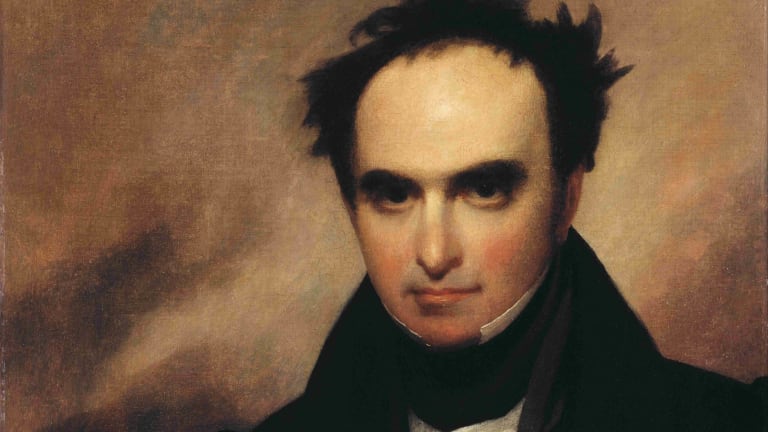
Daniel Webster was a pillar of American life for over a half century. An intelligent and articulate lawyer who later served in the U.S. Senate and as a Secretary of State to three administrations, Webster was the quintessential statesman.
At the age of 18, while a junior at Dartmouth, Webster was asked to deliver an Independence Day speech in Hanover, New Hampshire, home of the university. Let me draw to your attention one particular passage of his 1800 speech:
"It becomes us, on whom the defence of our country will ere long devolve, this day, most seriously to reflect on the duties incumbent upon us. Our ancestors bravely snatched expiring liberty from the grasp of Britain, whose touch is poison... Shall we, their descendants, now basely disgrace our lineage, and pusillanimously disclaim the legacy bequeathed to us? Shall we pronounce the sad valediction to freedom, and immolate liberty on the altars our fathers have raised to her?"
220 years later, does this sentiment not ring true today? Webster answered his own question:
"No! The response of a nation is, 'No!' Let it be registered in the archives of Heaven! Ere the religion we profess, and the privileges we enjoy, are sacrificed at the shrines of despots and demagogues, let the pillars of creation tremble! Let world be wrecked on world, and systems rush to ruin!"
Webster's speech was delivered in the shadow of growing hostility with France, but the sentiment carries a larger meaning and foreshadowed Webster's strong belief in abolition and the inspiration his leadership provided many.
No man is perfect, and any discussion of Webster's legacy must tackle not only his strengths, but his shortcomings. But isn't that the American story? Isn't that the story of humanity?
Travel certainly exposes us to that. When we travel we see the great promises of civilization and humanity and we see the tremendous shortcomings of humanity, both on a macro level and micro level. My recent visit to Cape Coast in Ghana, the gateway to transatlantic slavery, made those failings clear. We see that in Concentration Camps and gulags but we also see that in poverty and a prevailing social inequality that limits outcomes of many who just want to work hard and live a quiet life with their basic material needs met.
People talk about being the on the right side of history. But history is written by the victors and itself a struggle over narratives and even facts. For me, the importance is not so much being on the right side of history as it is of using our own sphere of influence to lift others up and treat everyone we encounter with dignity and respect. That includes tough love...we must stress personal responsibility and not make excuses for those who not only should know better, but do know better. But empathy unlocks understanding and understanding unlocks the sort of change that does not simply seek to whitewash the past, but wrestle with it, learn from it, and use it as a fulcrum to pivot toward progress.
As Webster said, "Shall we, their descendants, now basely disgrace our lineage, and pusillanimously disclaim the legacy bequeathed to us? Shall we pronounce the sad valediction to freedom, and immolate liberty on the altars our fathers have raised to her?" In one sense, his premise itself was flawed...the legacy bequeathed to us considered some men 3/5 of a person. But I hope the answer is no, for there was a deeper strain of liberty ingrained in the American experiment that over the last 244 years has made progress toward a more perfect union. We are humans. Thus, we can only approach that goal, never actually reach it. But each of us has an opportunity right here and right now to do our part to effectuate a more perfect union. Let's do it...no revolution is required beyond that of our own hearts.